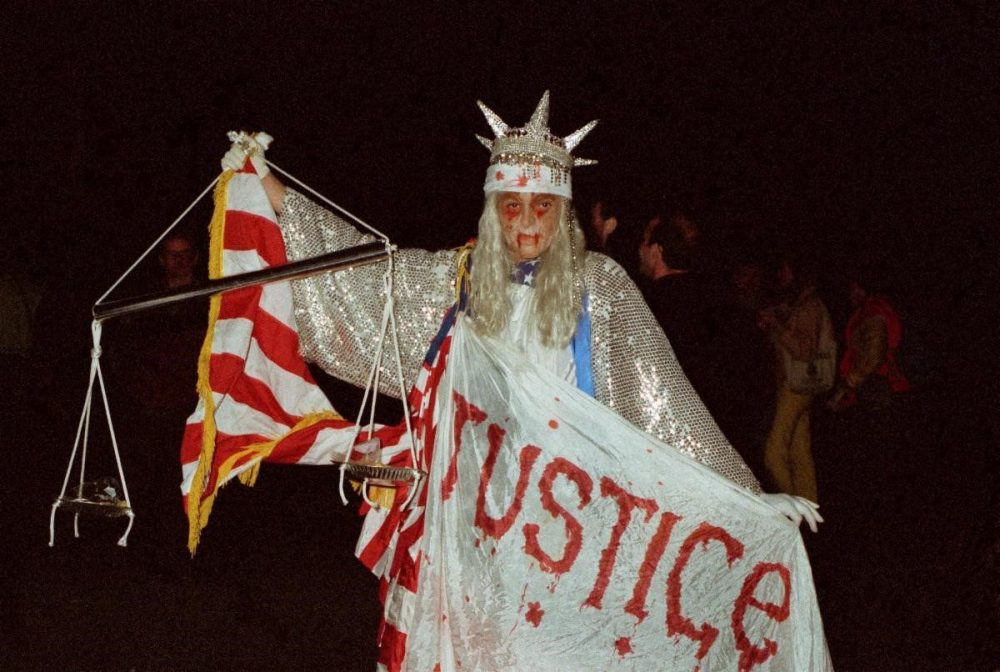The GLBT Historical Society has unveiled an online version of its exhibition “Performance, Protest and Politics: The Art of Gilbert Baker,” which opened at the GLBT Historical Society Museum on November 1.
The exhibition uses textiles, costumes, photographs and ephemera to paint a complex portrait of artist Gilbert Baker (1951–2017), who designed the iconic rainbow flag. The online exhibition opens on Monday, April 27 at glbthistory.org/gilbert-baker-exhibition.
First displayed at the 1978 San Francisco Gay Freedom Day Parade, the rainbow flag has transcended its humble, hand-sewn origins to become an internationally recognized symbol of the LGBTQ community. Yet the success of this design has in some ways overshadowed the larger story of its creator and his exceptional creative work.
“Performance, Protest and Politics” examines how Baker blurred the lines between artist and activist, protester and performer, emphasizing his intuitive understanding of the ways art can serve as a powerful means to address political and social issues. Over the course of four decades, Baker melded his artistic gifts with his devotion to justice, employing a range of media and approaches — including sewing, painting, design and performance — to advocate for positive social change.
The exhibition has been co-curated by Jeremy Prince, who has curated and overseen numerous exhibitions at the GLBT Historical Society Museum; and Joanna Black, the archivist who oversaw the donation of the Gilbert Baker Collection to the GLBT Historical Society’s archives in 2017.
Referring to the many extravagant costumes on display, Prince notes that Baker employed drag “as a vehicle to critique injustice and express outrage. From Betsy Ross to Pink Jesus, from Lady Liberty to the uniform of a concentration-camp prisoner, Baker’s drag wardrobe and personas represent the intersection of patriotism, discrimination and social justice.”
By exploring the less well known dimensions of Baker’s wide-ranging oeuvre, the exhibition places the rainbow flag back into the unexpected and evocative context of his exceptional life as an activist and artist. “We highlight some of the political flashpoints of Baker’s life and how his creative responses at those moments reveal a multilayered character — a man intent on being publicly seen and using his visibility as a declaration,” says Black.
“Performance, Protest and Politics: The Art of Gilbert Baker” opens online Monday, April 27 and can be experienced at glbthistory.org/gilbert-baker-exhibition.
